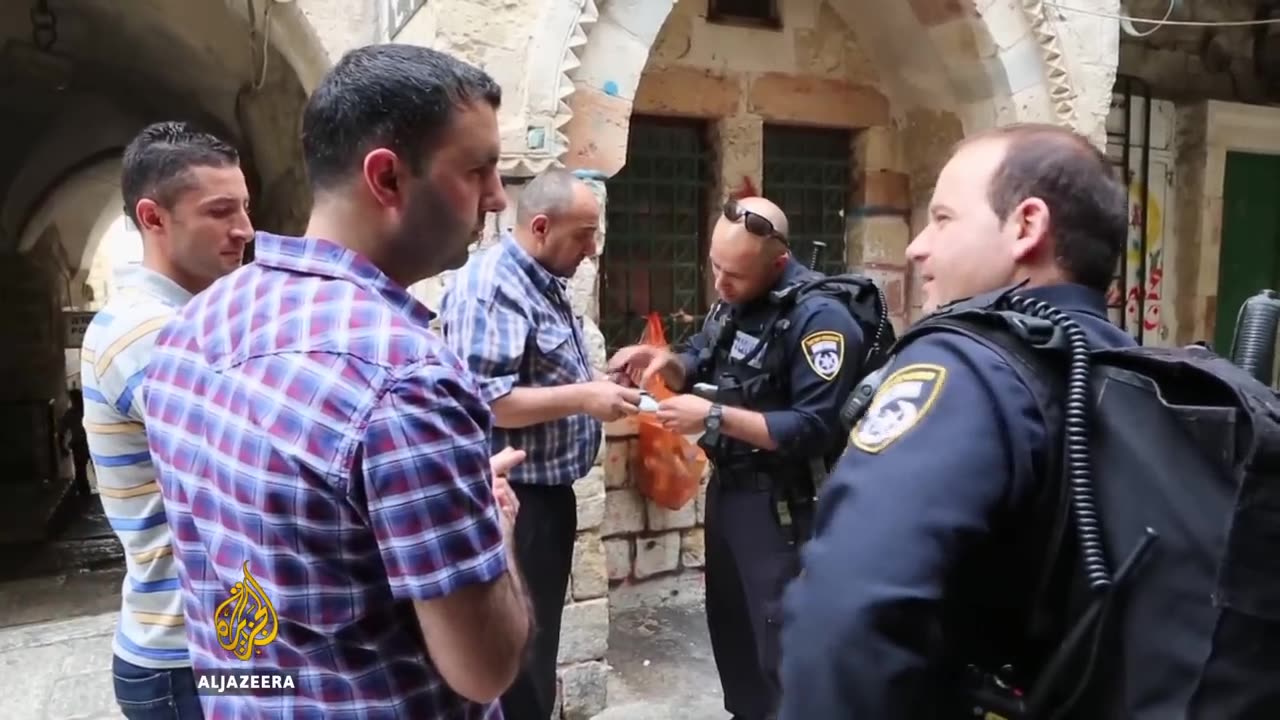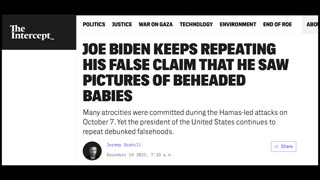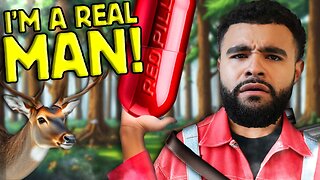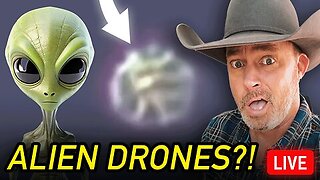Premium Only Content

Jerusalem: Dividing al-Aqsa | Documentary | Al Jazeera World
The al-Aqsa Mosque compound is in the Old City of Jerusalem, surrounded by a stone wall on all four sides.
It is recognisable by the famous golden roof of the Dome of the Rock at its centre. The compound also contains the grey-domed al-Qabali Mosque which is also widely known as the al-Aqsa Mosque. The whole compound is considered the third holiest site in Islam and is referred to by the Israelis as Temple Mount.
After World War I, Palestine was placed under interim British rule. Under the promises made in the Balfour Declaration, Britain was already committed to facilitate the founding of a homeland for the Jewish people in Palestine and began granting land to the Zionist movement to build settlements.
In 1929, Palestinians demonstrated against these settlements at the al-Buraq Wall on the western side of the compound - now known as the Western Wall.
Palestinians had begun to realise what increased Zionist influence in the region would mean, and their protests led to the al-Buraq Revolution of 1929: "The first real revolution on Palestinian land," according to the Palestinian researcher Ziad al-Hassan.
The site has been a centre of tension and attacks ever since. In 1969, an Australian evangelical Christian, Dennis Rohan, set fire to the al-Qabali Mosque. Many of the mosque's most important features, including a pulpit dating back to the 12th century, were destroyed. Rohan was tried for arson but was found to be clinically insane.
On Black Monday, October 8, 1990, 20 Palestinians were killed, according to UN figures, in what's known as the al-Aqsa Massacre.
Sixty-three people died in the Kotel Tunnel incident in September 1996, in protests over the opening of a new tunnel by the Israelis under the Western Wall.
The second Intifada in 2000, started at the al-Aqsa Mosque compound.
More recently, confrontations between Palestinians and Israeli forces in the compound, sparked in part by incursions by Israeli organisations, have led to wider clashes and an escalation in violence in both Israel and the occupied Palestinian territories.
This film traces the history of the al-Aqsa Mosque compound and its significance to both Muslims and Jews.
It looks at the division of Jerusalem after the founding of Israel in 1948; and the aftermath of the 1967 Six Day War when Israel occupied East Jerusalem and the whole of the West Bank.
It examines the treatment of Palestinians at the mosque compound and proposals by Israeli politicians to divide the site, despite the fact that the Israeli government repeatedly insists it does not want fundamental changes there.
The government is also now accused of funding groups which support major changes as to who can pray at the site. This has provoked more tension with security forces sometimes violently cracking down on Palestinian protesters and worshippers.
The film also looks at the Ibrahimi Mosque in Hebron - where Israel controls Palestinian access and has imposed access and prayer restrictions - and asks whether this is the shape of things to come at al-Aqsa.
-
 23:20
23:20
No wonder Aliens just drive by
1 month agoHe Bulldozed Palestinians Alive. But CNN Is Concerned About His Mental Health?
271 -
 2:37
2:37
Canadian Crooner
1 year agoPat Coolen | Let It Snow!
7.08K8 -
 2:44
2:44
BIG NEM
8 hours agoWhat's Really Behind the Fake Alpha Male Epidemic?
4.86K4 -
 57:20
57:20
State of the Second Podcast
7 days agoThe Inventor of Bump Stock Fights Back! (ft. Slide Fire)
3.75K2 -
 1:04:12
1:04:12
PMG
1 day ago $2.79 earned"I’ll be DRONED for Christmas!"
11.8K2 -
 23:38
23:38
RealitySurvival
1 day agoBest Anti-Drone Rounds For Self Defense
8.08K2 -
 57:43
57:43
barstoolsports
15 hours agoBest Shot Wins The Game | Surviving Barstool S4 Ep. 7
199K9 -
 1:52:24
1:52:24
Kim Iversen
11 hours agoLuigi Mangione Charged With TERRORISM | Liz Cheney Accused Of WITNESS TAMPERING, Faces 20 YEARS IN JAIL
105K143 -
 6:50:10
6:50:10
Akademiks
12 hours agoJay Z says he aint NEVER been friends w/ DIDDY! Bhad Bhabie lost her man? Travis Hunter Down Bad?
110K13 -
 2:27:04
2:27:04
AirCondaTv Gaming
10 hours ago $23.47 earnedWar Thunder - Tankering Around for That 10 Bomb
56.1K5